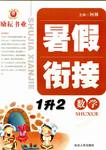题目内容
Paula Radcliffe, chasing (角逐) a third London marathon title (马拉松冠军), says she has become a stronger person after her terrible experience at the 2004 Athens Games.
Radcliffe, who failed to complete the Olympic marathon and the 10,000m last August, said: “Athens made me a stronger person and it made me care less about criticism.”
“In the past I wanted to please everyone, but now I am going to listen even more to the people around me.”
She didn’t care about criticism made at the weekend by Liz McColgan, who felt Radcliffe should have rested and let her body recover after her failure in Athens.
“Liz is someone I look up to but she hasn’t spoken to me since last year and if she really cared for me, I'm sure she would have contacted me.”
Instead Radcliffe won the New York City marathon just 11 weeks after Athens.
“In New York I wasn’t in my best state but I did know I was good enough to win the race.” Radcliffe insisted her only goal in Sunday’s race would be winning a third title and not chasing world records.
However, Radcliffe has not ruled out (排除) in the future chasing her "final" world record time and questioned sayings that marathon runners have the ability in their career to produce only four or five world-class times.
“I don't think that—although I can't put a number on it,” said Radcliffe. “That changes from person to person.”
Radcliffe is sure she can better her winning London 2003 performance at some point in the future. Following a successful three-month training period in the United States, the 31-year-old will chase a third title on Sunday after her first victory in 2002 and again 12 months later.
Radcliffe clocked a time of 2:18:56 in her first 42.2-kilometer race three years ago.
Afterwards she set a "mixed course" mark of 2:17:18 five months later in Chicago before lowering that to a time of 2:15:25 in the 2003 London event
- 1.
Radcliffe’s failure in Athens made her
- A.develop respect for Liz
- B.love people around her more
- C.rest for five months
- D.face criticism calmly
- A.
- 2.
Which of the following is true according to the passage?
- A.Radcliffe broke the world record in the New York City marathon
- B.Radcliffe didn't fully recover before the New York City marathon
- C.Radcliffe won her first marathon title in the New York City marathon
- D.Radcliffe had a 3-month training before the New York City marathon
- A.
- 3.
By saying “I can't put a number on it,” Radcliffe means she’s not sure
- A.if she has the ability to set a new world record
- B.if she can win another race though she has won many times
- C.how many times a marathon runner can set the world record
- D.if she has the ability to produce four or five world-class times
- A.
- 4.
What can we learn from Radcliffe's story?
- A.Practice makes perfect
- B.Well begun is half done
- C.A friend in need is a friend indeed
- D.Where there is a will there is a way
- A.
DBCD
试题分析:本文讲述了著名的马拉松运动员Radcliffe不顾困难,创造出属于自己的成绩的故事,告诉我们要有坚强的意志。
1.D 推理题。根据第二段2,3,4行“Athens made me a stronger person and it made me care less about criticism.” “In the past I wanted to please everyone, but now I am going to listen even more to the people around me.”说明现在的她更能平静地面对别人的批评,这让她更为强大,故D正确。
2.B 推理题。根据Instead Radcliffe won the New York City marathon just 11 weeks after Athens.“In New York I wasn’t in my best state but I did know I was good enough to win the race.”她说在纽约她并没有处在自己的最佳状态,说明那个时候她还没有从过去恢复过来,所以才会没有处于最佳的状态。故B正确。
3.C 推理题。根据上一段However, Radcliffe has not ruled out (排除) in the future chasing her "final" world record time and questioned sayings that marathon runners have the ability in their career to produce only four or five world-class times.说明这里的I can't put a number on it,是指创造世界纪录的话题,故C项正确。
4.D 推理题。本文讲述了著名的马拉松运动员Radcliffe不顾困难,创造出属于自己的成绩的故事,告诉我们要有坚强的意志。故D正确。
考点:考查情感类短文阅读
点评:本文内容较为抽象,考生要细细阅读文章才可以理解大意,考生读懂文章中的每个句子的意思还要推理它们之间的关系,结合自己的生活常识和经验,再通过逻辑推理和判断,理解文章的言外之意,从而揭示文章的深层涵义。任何一篇文章都有其特定的写作目的,读者应当知道如何去做或按照某种方式传递思考问题。推理判断题的答案不可能在文章中直接找到,因此推理时我们务必要忠于原文,在文章中寻找并确定可推论的依据,即:已知部分-推论的前提,从中推测出未知部分-推理的结论,切忌妄加评论,把自己的观点当成作者的观点。
试题分析:本文讲述了著名的马拉松运动员Radcliffe不顾困难,创造出属于自己的成绩的故事,告诉我们要有坚强的意志。
1.D 推理题。根据第二段2,3,4行“Athens made me a stronger person and it made me care less about criticism.” “In the past I wanted to please everyone, but now I am going to listen even more to the people around me.”说明现在的她更能平静地面对别人的批评,这让她更为强大,故D正确。
2.B 推理题。根据Instead Radcliffe won the New York City marathon just 11 weeks after Athens.“In New York I wasn’t in my best state but I did know I was good enough to win the race.”她说在纽约她并没有处在自己的最佳状态,说明那个时候她还没有从过去恢复过来,所以才会没有处于最佳的状态。故B正确。
3.C 推理题。根据上一段However, Radcliffe has not ruled out (排除) in the future chasing her "final" world record time and questioned sayings that marathon runners have the ability in their career to produce only four or five world-class times.说明这里的I can't put a number on it,是指创造世界纪录的话题,故C项正确。
4.D 推理题。本文讲述了著名的马拉松运动员Radcliffe不顾困难,创造出属于自己的成绩的故事,告诉我们要有坚强的意志。故D正确。
考点:考查情感类短文阅读
点评:本文内容较为抽象,考生要细细阅读文章才可以理解大意,考生读懂文章中的每个句子的意思还要推理它们之间的关系,结合自己的生活常识和经验,再通过逻辑推理和判断,理解文章的言外之意,从而揭示文章的深层涵义。任何一篇文章都有其特定的写作目的,读者应当知道如何去做或按照某种方式传递思考问题。推理判断题的答案不可能在文章中直接找到,因此推理时我们务必要忠于原文,在文章中寻找并确定可推论的依据,即:已知部分-推论的前提,从中推测出未知部分-推理的结论,切忌妄加评论,把自己的观点当成作者的观点。

练习册系列答案
 励耘书业暑假衔接宁波出版社系列答案
励耘书业暑假衔接宁波出版社系列答案
相关题目